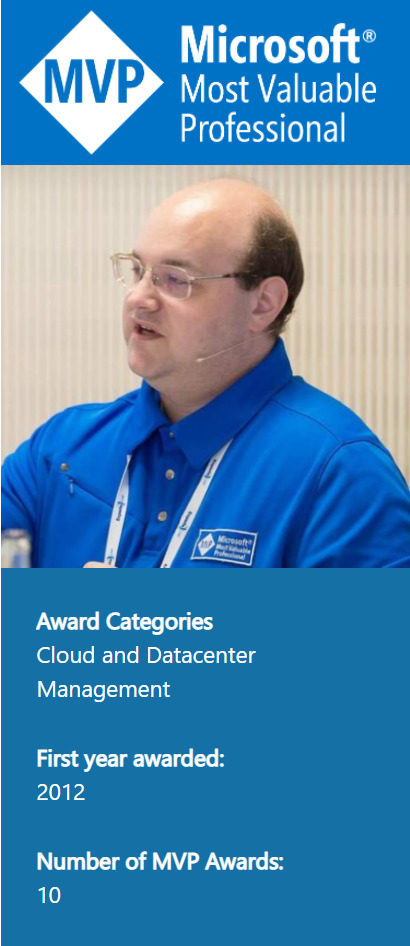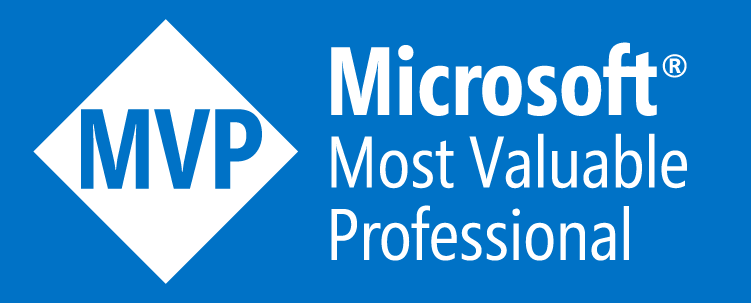While I am writing this, I have been a Microsoft MVP for 10 years now. I have been getting regular requests to write something about the MVP program and to answer some questions about it. I used to say, find some blog posts of others who have been a long time MVP and find your answers there. But since I am still getting many questions about the topic (and even yearly from Microsoft MVP program itself), I will go through some of it today.
I get many questions asked about the MVP program, let’s throw up a few of them:
- What is this MVP program?
- How do I get into this MVP program?
- Do you work for Microsoft?
- Do you get paid by Microsoft?
- Are you getting “stuff”?
- What does the MVP program mean to you?
- Can you nominate me for MVP?
- Will you be upset if you are no longer an MVP?
- How many blog posts or forum questions do you need to handle to become an MVP?
- What does it take to renew for the next year?
- Do you regularly talk with Microsoft staff?
- Can you tell me about ProductXYZ, which is not released yet?
- Are you allowed to work with ProductWXY, which is not a Microsoft product?
Those are just some of the examples of questions. We can combine a few and re-order them a bit to answer some of this. Let us start with the generic bits first.
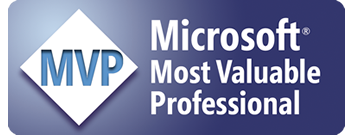
What is the Microsoft MVP program?
Well, there is a whole page about it on Microsoft, with explanations, and where you can also find MVPs. The main site is https://mvp.microsoft.com . Actually, I found the brief explanations about the Who, what, wat does it take and how to become – page a very good one over at https://mvp.microsoft.com/en-US/Overview .
My summary would be that Microsoft awards yearly a number of individuals for their community contributions of “last year”. It’s not exactly a year to the date of receiving the award, but if you assume it is, it’s easier to understand. The MVP award is for one year, and it is possible to earn it multiple times. It is about people who are passionate and knowledgeable about Microsoft products (1 or more) and are very active in sharing their knowledge and experiences with the tech community. There are I think around 4000 MVPs world-wide.
The award is given in one of 11 main areas of tech (Category), and specifically for one of the 116 contribution areas as you can see from the table on this page https://mvp.microsoft.com/en-US/pages/mvp-award-update which ranges from Azure cloud topics, to office, to windows, to IOT, to programming languages, to devops, to AI, to security, and many more. I am in the Cloud & Datacenter Management Category for the contribution area of Datacenter Management. There are not exactly equal numbers of MVPs across all categories and areas, or physical locations. But you can see it is widespread, which makes it also a very interesting program!
How to become an MVP?
This goes along with the questions of what does it take, can you nominate me, how do you renew, how many blog posts/answers are needed?
Well, the official part is that you need to be nominated for consideration to become an MVP. You can be nominated by a Microsoft staff member or an MVP. There is a form. There is a review procedure, which is done by Microsoft staff. By the way, a Microsoft staff member cannot be an MVP at the same time.
What they do in broad terms is to look at the person and their community contributions and the way they are doing it. They look for Experts in their field (which is obviously one of the fields in that table of categories and areas), who Share their passion with the community in one or more of many ways. These can be by blogging, social media posts, answering questions, writing content, speaking in podcasts/webcasts/videos/usergroups/conferences, creating and sharing code (code/scripts/githubs), run tech websites or user groups or conferences (aside from speaking and writing for those), mentoring, and several more possibilities. Nominations can happen throughout the year and can also be awarded at different times of the year.
For my personal journey the first year I was nominated it was due to being extremely active in the forums and answering loads of questions and blogging about questions and answers. Afterwards, I started public speaking, writing books and tech papers, running a user group, running a tech blog, presenting webinars and so on.
This also bring us to many questions about EXACTLY what to do. How many blog posts or answered questions does it take? This is not exactly how it works, so there is not an exact answer to it. Of course, there is a part of it related to numbers of contributions, but it is also about the quality of “content” and reach in the community. Also, it is different for everybody. Some are focused on speaking and presenting, while others purely blog, or focus on answering forum questions. Some do a bit of everything (some do a lot of everything as well). The review also takes into account if there is any value and expertise in the contributions. For example, you might be answering all questions in the community with “yes” or “no” and try to get a high number, but many questions do require a little bit of additional context around it to explain. So, numbers is not everything. Also, there is no fixed number of things you need to pass to be able to get nominated. Else they could automate it, but the review is a human process looking at the whole combination.
When talking about renewal process for an MVP award, I think the official statement is that it is actually a New reward again. There is again a whole review procedure. There is not a separate nomination, but there is the whole filling in of contributions of that year and answering some questions and so on. For longer-time MVPs it is usually the period from 1 April to 31 March where the contributions are made and submitted. A few of those items are automatic, such as some Product Group Interaction meetings (specially for MVPs) and numbers from Microsoft tech forums also appear on their own. So, there are a few small differences, but for a big part it is the same procedure. Once they had time to review all contributions by you and by others in the community, it is waiting for 1 July to hear if you receive a new MVP award or not.
Can I nominate you?
Well, it depends. It might be difficult for me to notice your contributions in a field which is not the same field as where I am operating in. Also, it might be difficult to judge it. Usually, you would be noticed and nominated by Microsoft employees or MVPs working in the same field. Of course, it is possible to ask an MVP in another field to refer to an MVP in your own field. But of course, several can be found through the MVP site and the forums. You can ask of course.
Keep in mind that becoming an MVP is not really a goal to set. Neither is it a Job to become one or stay one. It does take a lot of time and energy for sure! Also keep in mind that all of the MVP story is not about being paid. These are people who are passionate about products and solutions and share their knowledge and experiences freely and Love to do this in the community.
What is also possible is to help very active community members and mentor them in how to be more effective in their communication/writing/presentation and so on, to reach more people, have more fun, get better content out there.
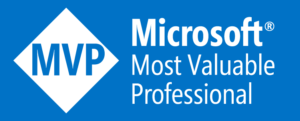
What are you getting?
This combines a few of the questions from the beginning as well.
First of all, MVP has nothing to do with getting paid. It is an award.
We get a welcome package, with a glass year-ring for our MVP statue at home (only get one of those the first time you become MVP). Next you put those year-rings on it. Looks pretty nice! In the welcome package is also stickers, a card, a pin, lots of papers about NDA (we come to that later).
And you get access to the MVP site.
Through the MVP program site you get access to meeting invitations with product teams, or with MVP Community Program Managers from your specialization or region. There are Teams channels, e-mail distribution lists and such things as required.
In some cases, depending on area, specialization, circumstances, budget and so on and so on, you might get a t-shirt or a backpack or stickers from some product or location.
So:
No, I do not work for Microsoft. If I did, I would not be an MVP.
No, I do not get paid by Microsoft as an MVP.
Yes, we sometimes get some stuff.
There is an initiative whereby software companies do offer an NFR license for free to MVPs from Microsoft and often several other MVP-type programs from other vendors. These are usually for the same year somebody is an MVP in. Of course, only for own use. But these are nice software, and some of those I do regularly use. For example, I use SnagIt to play with images and put them in presentations and blog posts again. So, in that case it’s a great tool, and it gets used again to create better community content.
By the way, I realize I had a question listed above regarding if we are allowed to use or talk about a product which is not a Microsoft product (VMware, Dell, HP, Cisco, AWS, whatever). Yes, many community leaders are working with several products from several vendors. Sometimes comparing them, sometimes simply because the world is not 1-vendor based. This is not a limit or anything. In many cases it is a good thing that one has a wide view of a landscape as well as knowing about some details very nearby.
Information
I will put the title of this topic that way first, since a few questions there.
First question we get is if we do talk with product groups or people from Microsoft often.
This is different for every MVP. But yes, we are very regularly in product group interaction meetings. These are often meetings where a specific topic is talked about and where they talk about what they are working on. Sometimes a bit about roadmap going forward. Asking MVPs for input on features or other things relevant to the story.
We also have an MVP summit yearly, where it is also about knowledge sharing, roadmaps, features, new stuff, upcoming stuff, and so on. But also, to interact with each other. Both between a lot of MVP’s you meet, and with Microsoft staff you can meet.
There can also be meetings between several MVPs and an organizing Microsoft Community manager. For example, the CPM for Benelux and Nordics has regular meetings with any MVPs from the area who want to join at that time. It is a bit of internal community, some presentations, some specific topics related to the MVP program and sometimes also meetings for relaxing and open discussions between people who are vastly different and also vastly similar I would say. It is different for everybody of course.
And yes, there are a lot of MVPs who have even more interactions with Microsoft staff, through all kinds of channels. Again, this is different for everybody. But they likely would have had these contacts even without the MVP status. Granted it makes chatting about a few topics slightly easier at times due to NDA. The next part of the story…
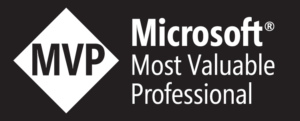
Non-Disclosure Agreement (NDA)
When becoming an MVP, you sign an NDA agreement.
Microsoft staff is talking to you about several things which are not fully out in the open yet. Does not matter if it is a small or a big thing, or if it is something being released tomorrow or next year (or maybe never). In order for them to safely be able to do this, the MVPs have this NDA. During MVP related meetings it is made clear what is NDA and is only for the eyes and ears of the MVPs in that meeting. This way the MVPs can also be asked for opinions about something which is coming up, or for example a list of priorities as we see them from the community or customer perspectives. This information is not to be leaked and discussed in the open. After Microsoft releases the information themselves (information or products of course), it is out in the open and can be talked and written about of course.
So, I can NOT tell you about a product or feature which is not released yet and not yet in public preview for example. I might know about it, I might not know about it (there are so many things going on in so many fields I am sure to not know many of them anyway, except for a few fields I work in most).
What it means to me
There are only a few questions left. Those have to do with what it means to me being an MVP, and will I be upset if I am not renewed.
As with several items above… This is again very personal to everybody.
Funny thing is, that for MVP renewal you have to submit a load of community contributions you did last year and also answer a few questions. And some question is a bit in that area, what it means to you to be an MVP (I changed the wording or the question for this piece here).
There are also several ways to look at it. I think after 10 years, I have enough experiences to say something.
When I first met some MVPs and talked to them, I was intrigued by how that MVP thing worked. But I also was reading a lot of information on the net from forums, blogs, newsgroups, email channels and so on. I also met people through my work and conferences. In most cases MVP are approachable and friendly and people-people. This comes back in at least sharing a lot with community. Some of course are most used to being out in the open (speakers at conferences), and some are only in the open in virtual spaces (Answering questions in forums or creating code or writing books). Again, everybody is different, right?
Also, a few years later I was so much in contact with some of them, but not active in the community. I was active as somebody working with certain products as a system admin, as a consultant and as somebody sometimes connecting to Microsoft through Beta Exams and some partner events. A year after that I went crazy on the forums answering so many questions and blogging about regular Q&A items, that I was making probably 40 hours per week in community work outside of office hours. That got noticed by the people I already knew and frankly have been waiting for me to do that to nominate me.
When I got nominated and accepted into the MVP group, it was huge honor to me. Also, it was another opportunity to interact more with the Product team and other MVPs, many who I already knew or knew about from their community efforts. The MVP Summit was an even better opportunity to meet them in person!!! Every single year I get renewed or even considered for review is an honor to me actually. It means somebody is investing time and effort into reviewing and hopefully at some point accepting. But also, the other stuff coming after that, such as being added to Teams channels and meetings and so on.
Of course, being an MVP does help a bit in being accepted as a speaker in some conferences and writer to some books and so on. In most cases, the publishers and organizers know that you are more likely to have a lot of knowledge in your respective field and are willing to share it. Which is kind of what books, articles, and speaking sessions are. I was also thankful that a few more experienced MVPs helped me get started with some of those subjects. For example, public speaking and presenting in also a non-native language for me in another country, was a hurdle. But by doing a joint session with another MVP or multiple, does give you confidence and a chance to come forward and share what you know. Which is always different from somebody else. Everybody has unique experiences. I loved that part as well and got to do it often in the years after world-wide both physical and virtual.
But to me, being an MVP is also being part of a community. A community of community people. Sounds funny. These are people who share and know a lot of techy geeky stuff. And they are fun to hang out with. Well, That is my experience. As far as I have seen MVPs also always help each other. This can be on a personal tech matter, or like I said a speaking opportunity, or by referring some question forward until an answer is found. After 10 years, I feel very at home in the MVP community and can say that I did not have any major negative experiences.
To me it is also fun to get a chance to contribute to the products and product teams and others at Microsoft. To give feedback, test products, talk about the future and so on. And no, being an MVP is not about agreeing with everything. You can be critical, of course if you have a reason. For example, from experiences from yourself and customers. Just be honest and be mindful about the way you say things. It is still about humans interacting.
By the way, having said that. I think the MVP program is also a place where a lot of attention is placed on diversity, being mindful, being inclusive, have empathy, being thoughtful, and being friendly and open. There is also a code of conduct for that. But in general, it makes for a real feeling of being a group. For me it feels as a safe place (again, I cannot speak for everybody and only my own experiences and I am sure this code of conduct is there for a reason). I can say that I have been in many situations, such as at the Summit or in the regional MVP meetings, where you are in there with a group of people from different countries, backgrounds, sexes, abilities, specialisms and so on and so on. You find yourself talking from minute to minute sometimes with totally different people. I do not just mingle with people from the same specialism as I happen to have. This gives so many insights and experiences and enriches. The same is true outside of the MVP program obviously! Take a chance, and you will see there are some nice people outside your immediate circle as well.
Is this all it means to me? Probably not. There is more. But community is a big one, and as you can see in different ways, shapes and forms.
Would I be upset if I am not renewed?
No, I would not. Of course, I would love to be renewed again, if I also have the feeling that I am reaching people from the community in a positive way and at a regular pace. I also know there are many people in the world, and there could be x more people who do more. And even though there is no hard limit to the number of MVPs in the world, it can happen that there are so many who are more deserving of the award in a certain year that I fall off the group. I would be happy for those who deserve it, because you see them working hard and contributing to the community! They are already part of the community, it is just having an MVP award or not. But with or without reward, you can feel being part of the community and have fun sharing knowledge and passion for technologies. It does not make that more or less. If you fall out of the reward program, it does not make you less as a person either. There are lots of other ways we see people leave the MVP program as well. Such as starting to work for Microsoft. Or by changing field or type of work and saying they do not need to be reviewed for the next review cycle, because of any reason you might have.
I would be a little sad if I do not get renewed and would need to eat a comforting ice cream! Of course, if I do get renewed, I would celebrate with an ice cream! Just so you know!
For now, I am pretty happy with where I am and what I do. I always feel like doing more community work, as long as I can combine it with getting some sleep and having the energy for it all. And If I happen to get an award again, I will be very happy and thankful and honored. And if I can help new MVPs or aspiring MVPs with some advice or mentoring and given that I have possibility and time to do it, then I will try to help out. Again, this is also community.
The story above is partly my own story around this subject and my view, and of course only bits and pieces of it. Since one can talk for hours and hours about such subjects. The story is long enough as a blog post as it is! To me, it has been so much fun so far in the MVP program and I would like to be a part of it and also the community as a whole for much longer. Let’s go for it!
Bob Cornelissen – Microsoft MVP for 10 years in the specialties of SCOM, System Center, Cloud & Datacenter Management (as the names and designations changed over the years).
